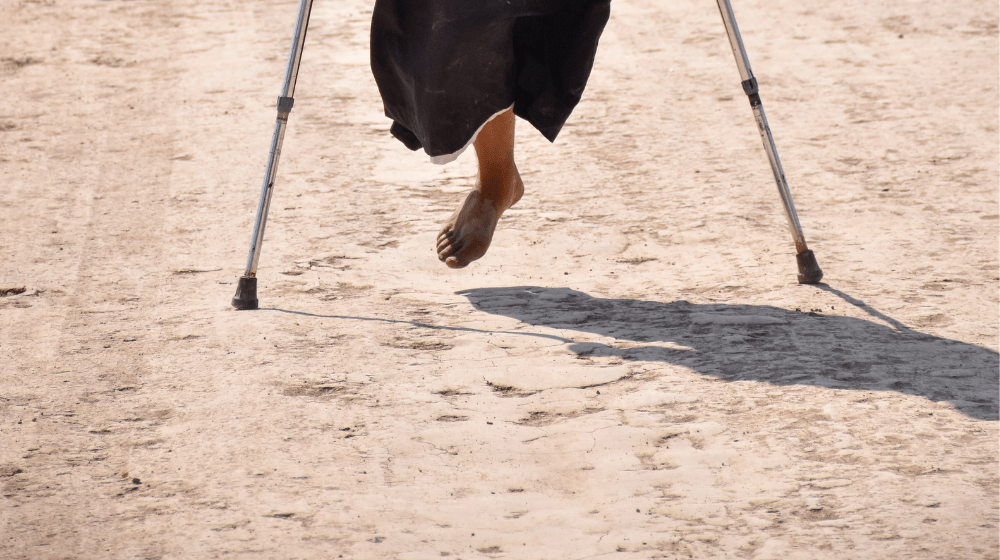“I am not physically strong. I am a weak person. I cannot do anything, so why live in this world?”
As a person with a disability, Ramala* faced many challenges, both growing up and as an adult.
In her twenties, she was heartbroken as she watched all her friends and relatives get married. She dreamt of having her own family someday - a loving husband and children of her own. Her disability was not going to stop her! After repeated rejections, Ramala found herself depressed. She felt like her dream was even further away beyond reach. Until one day, she met Pradeep. He saw past her limp. For most of her life, Ramala had been treated differently due to her polio-induced disability, but Pradeep saw past this and in time, they were married and they had two daughters. This is when things started to change.
Pradeep started abusing Ramala everyday - both physically and mentally - often hurling insults even at the two children. Her dreams were shattered! He even threatened to kill them on multiple occasions. She endured this all for a few years until at one point she couldn't take it anymore.
One night, she ran away from home with her children. She moved to Kathmandu and started working as a house maid but she found it hard to manage the finances being the sole income-earner for herself and her children. Yet she persevered until one day she heard that her father in law had passed away and so she moved back to Udayapur, Province 1 to pay her respects. She was shocked to find out her husband had remarried and as such, she nor her daughters were welcome.
Hearing about the ordeal, one of her neighbors referred Ramala to a nearby safe home. Here at the Katari Safe house,** she and her daughters received food, shelter, necessary counseling and legal service, and more importantly a safe haven, taking into account her unique needs. With the help of the service providers at the safe house, she was also able to file a case with the Nepal Police for her children's right to the property where they lived. Although Pradeep and his family pushed back, eventually he gave them their due rights.
Ramala, now 32 years old, dreams of educating her girls (ages 8 and 4) as much as she can, and spend the rest of her life in a new place to call home. Her journey has just begun but she is hopeful that she and her daughters can make it.
Women and girls with disabilities globally, face particular barriers to their rights, as gender and disability intersect. Far too often, they experience discrimination, exclusion, isolation and denial of their dignity and autonomy, both in public and even within their own families. They are also often denied access to basic and essential services due to lack of disability friendly spaces. Estimates indicate that there are 700 million women and girls with disabilities in the world today and in Nepal, 1.71% of women have a disability (Census, 2011). Furthermore, girls and women who have a disability are more likely to become victims of physical and sexual abuse.
This International Day for Persons with Disabilities 2022, we recognize that our response services to gender-based violence victims and survivors must take into account everyone’s individual unique needs and requirements. They must be inclusive and survivor-centered. Service providers also need to be trained to be able to provide these tailored services. This is the only way to ensure that we truly leave no one behind.
Ends
* Names have been changed to maintain confidentiality.
**The Katari safe house is supported under UNFPA’s Gender-based Violence Prevention and Response Project which is funded by the Government of Norway and the Swiss Development Cooperation under a funding envelope of USD 11.2 million. With several partners on the ground such as VSO and IPAS, the Project is implemented in Provinces 1 and 7 (Sudurpashchim) in Nepal from 2020-2024.


